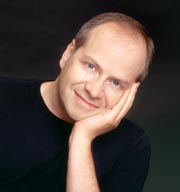Yuja Wang strikes sparks at Kravis with Russian National Orchestra

Pianist Yuja Wang
The world-class Russian National Orchestra was the marquee attraction of the Regional Arts Series’ Wednesday matinee at the Kravis Center in West Palm Beach. But the real excitement was provided by the extraordinarily gifted twenty-two year old Chinese pianist Yuja Wang, who gave an electrifying performance of Beethoven’s Piano Concerto No. 5 with the Moscow-based ensemble under conductor Patrick Summers.
Wang made an impressive South Florida debut last season playing concertos by Ravel and Stravinsky with the New World Symphony (and she returns to play Bartok’s Piano Concerto No. 2 with the New World under Michael Tilson Thomas in April).
She possesses a big-boned technique that can meet any challenge, wedded to an arresting musical personality. Wang’s fleet, finely articulated reading of the first movement set the stage for an exciting performance that was not bereft of poetry. Indeed her dreamy account of the Adagio rang forth with natural, unforced beauty, the pianist unafraid to play very softly. Wang’s vivacious treatment of the final Rondo, marked by hairpin dynamics, both thundered and sparkled; the triplets dashed off as if mere exercise. This was a young pianist’s Emperor, lacking the accrued wisdom of a Serkin or Brendel but no less impressive.
Summers, a well-traveled opera conductor, was a sensitive, discerning accompanist. He carefully dovetailed Wang’s shaping of the melodic lines, astutely balancing the orchestral fabric. Favoring brisk tempos, Summers drew exciting playing from the orchestra, the intonation and perfect execution of the exposed horn parts a standout. Beethoven’s Coriolan Overture was an apt curtain-raiser to the Emperor, Summers leading a muscular but blatant and unsubtle performance.
The Russian orchestra’s strings have the deep sonority and heft of a great pipe organ while the winds are solid and distinctive, unmarred by the heavy vibrato that plagued Russian orchestras in the past. With brass that can be alternately brilliant or mellow, this is an orchestra that can turn on a dime.
The ensemble shone resplendently in Dvorak’s Symphony No. 8 in G Major, exhibiting strength in every section from the first chairs to the last stands. Summers led a robust performance that lacked Czech fire and Brahmsian lyricism but was effective in a straightforward manner. The conductor managed the big climaxes and minor-key modulations of the second movement effectively. He brought an extra dose of charm to the Allegretto, introducing Viennese-style slides between notes in the strings. Concertmaster Alexei Bruni’s solo in the second movement, marked by generous rubato and extra tonal sweetness, recalled a past generation of Russian violinists. Summers avoided the temptation to overemphasize the brass in the finale.
After repeated curtain calls, Summers unleashed the orchestra’s formidable firepower at top speed in the Dance of the Buffoons from Tchaikovsky’s The Snow Maiden with some flashy trumpet work capping the afternoon in high spirits.
The Russian National Orchestra conducted by Patrick Summers plays Glinka’s Ruslan and Ludmila Overture, Tchaikovsky’s Symphony No.4 and Rachmaninoff’s Piano Concerto No.2 (with soloist Yuja Wang) 8 P.M. at the Kravis Center in West Palm Beach. 561-832-7469, http://kravis.org
Posted in Performances
Leave a Comment
Thu Mar 4, 2010
at 9:13 am
No Comments







